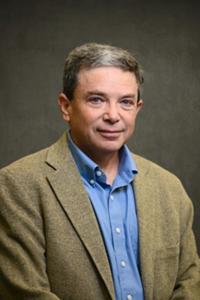Eric A. Morris, Ph.D.

Professor
Contact
Nieri Department of Construction and Real Estate Development
Office: 2-317 Lee Hall
Phone: 864-656-9889
Email: emorri7@clemson.edu
Education
Ph.D. in Urban Planning, UCLA (2011); M.A. in Urban Planning, UCLA (2004); B.A. in History and Literature, Harvard University (1989)
Courses
Transportation and Society; Urban and Regional Economics for Planners; Cities, Technology and Society; Transportation's Impacts on Location and the Economy
Research Interests
Transportation; Urban Economics; Well-Being; Activity Patterns and Time Use
About Dr. Morris:
Eric A. Morris is a Professor of City and Regional Planning. His primary focus is on how transportation and urbanization contribute to our activity patterns, access to opportunities, and well-being and quality of life. He also conducts research in the field of transportation history, and his co-authored book "The Drive for Dollars: How Fiscal Politics Shaped Urban Freeways and Transformed American Cities" has recently been published by Oxford University Press. Other interests include transportation equity, shared mobility, transportation finance, transportation policy, transportation and the economy, goods movement and logistics, and transportation and economic geography. He wrote a column on transportation for the New York Times for several years. He was also the Associate Editor of Access magazine, and a Handling Editor for the Transportation Research Record journal. He teaches courses on transportation planning, transportation and the economy, cities and technology, and urban economics. Before returning to academia he worked as a travel writer, a sports writer, and a television writer and producer.
Dr. Morris in his own words:
Hometown: Chicago, a great “urban planning” place with a lot of civic pride. Definitely helped kindle my interest in cities at a young age.
What I like best about teaching at Clemson: Many things, but I especially enjoy the very low student/teacher ratio. I am able to give plenty of individual attention to students and I really enjoy that I get to know them all personally.
Favorite urban planning movie: John Sayles’ City of Hope. A masterpiece, and packed with urban planning to boot.
Advice for prospective students: I majored in 17th century English history, which everybody told me was the most useless major ever. Years later I sold a pirate show in part because of this. (It’s called Jack of All Trades, extra credit if you’ve seen it :-). The moral of the story: study what you love, everything else will work out.
When not teaching I . . . Have a dominant fantasy basketball team, the Direwolves. League champion the last three years in a row. I teach statistics at Clemson, so students are getting their money’s worth!
What students should take away from my classes: An understanding of the big picture issues: How do we travel? Why do we travel? How do we pay for travel, and when should we spend on it? How does travel affect our cities and lives? Students will have plenty of time to work on more specific, bounded, practical tasks when they are working transportation planners, but their time with us is a special chance to think about big ideas.
Best part of the job: It’s hard to beat a job where you spend your days talking about, reading about, and writing about a topic you find incredibly interesting.
Why I became an urban planner: Played too much SimCity.
Favorite Cities: Many, including Amsterdam, Dublin, Munich, NY, Chicago, Boston, Santa Barbara and Charleston. Greenville SC, where I live now, is at or near the top of the list: walkable, lively, and extremely attractive.
If I wasn’t teaching urban planning I would be . . . Assuming my tryout with the Chicago Bulls didn’t go well, maybe writing a column for the New York Times, which I already got to do for a couple of years.
Awards
CAAH Dean's Award for Excellence in Research Award 2019; IPUMS Research Award 2019; Clemson Board of Trustees Award for Excellence 2018; ACSP Chester Rapkin Award 2018; TRB Charley Wooten Award 2016; ACSP Best Poster Award 2010; APA Transportation Division Best Student Paper Award 2006
